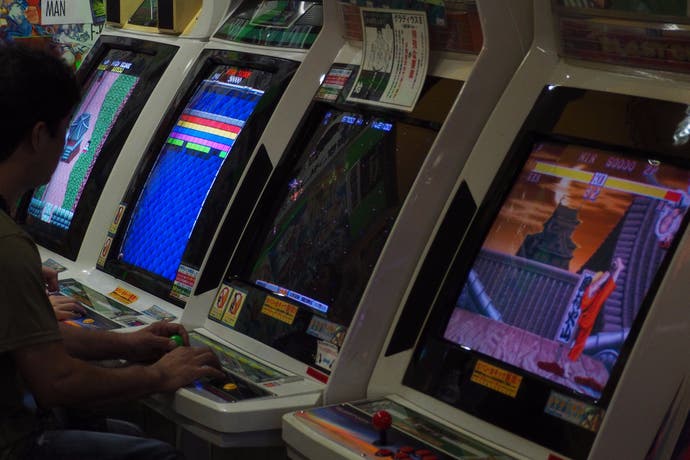Tokyo Game Show may have underwhelmed, but Japan remains the heart of gaming
Tokyo story.
If you're after bold proclamations about the state of gaming in Japan, you might be better off looking elsewhere. Ask a native, perhaps, or someone more intimate with the daily gaming habits of people who live here. This past week I've been just a tourist, passing through with all the residual wide-eyed wonder of most fleeting visitors to Tokyo. And while the game show itself might have underwhelmed, there was lots to excite elsewhere.
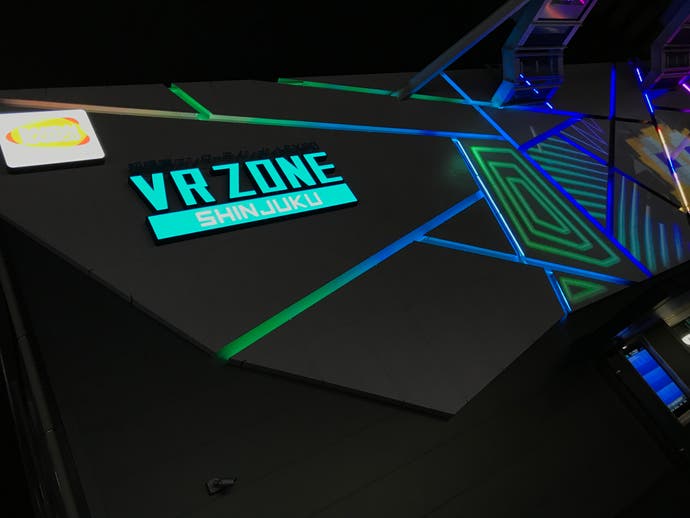
It was, as has now become standard, a fairly low-key Tokyo Game Show. There wasn't much by way of surprises - Square Enix's Left Alive was one of the few genuinely new games to make an appearance at Sony's pre-show conference, and elsewhere the big announcements were a brace of PS2 revivals in the shape of Gungrave's unexpected PlayStation VR return and Zone of the Ender 2's remaster for that same platform - and if you wanted to make the argument for the diminishing relevance of traditional Japanese console games as you walked the well-spaced show floor on one of the quiet business days, you'd have found plenty to back your case.
I'd find plenty to counter that, though. There's the diminishing relevance of game shows such as this to take into account, for one, with many publishers now opting for the more direct approach. Or maybe there's Tokyo Games Show's proximity to Gamescom, to Paris Games Week and to Sony's own PlayStation Experience, all of which leaves little room for new announcements. Not that the quarter of a million people who made the trek out to Chiba on the public days were that bothered; the enthusiasm, energy and colour in those crowds reaffirmed that, no matter what's on show on the Makuhari Messe floor, Japan is still the most exciting destination if you've any love for video games.
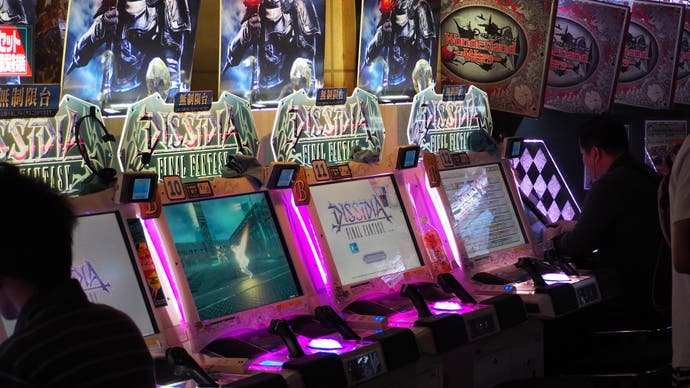
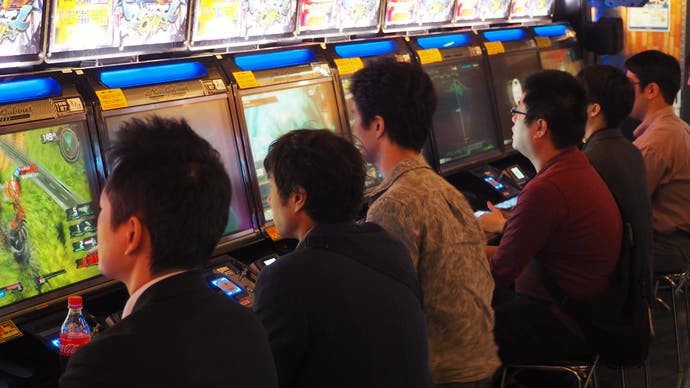
A lot of that excitement at this year's show was for eSports, where the large part of an entire hall was given over to a succession of tournaments, or for virtual reality, with headsets being almost as prolific as consoles or PC demo stands out on the showfloor. This was the perfect backdrop for a fresh push for VR from Sony during its conference, and this is a market with a real appetite for the form. That's been whetted, in no small part, by how arcades have adopted VR - Shinjuku's VR Zone, operated by Bandai Namco, remains one of the city's hottest tickets.
Back at the show itself, the Switch was hard to find - as it is in stores across Tokyo where stock disappears within seconds of hitting shelves, and where many shops have turned to a lottery system to distribute new consoles - which is to be expected given Nintendo's traditional refusal to exhibit at the show. The console's success seems to have taken many big-name publishers by surprise, and it's only among the quick-to-mobilise indies at TGS that the Switch was in any abundance. And those indies themselves were in abundance, too, either drawn from across to the globe or from elsewhere in Japan - as Kyoto's BitSummit has been proving every year, there's a fair few to pick from.
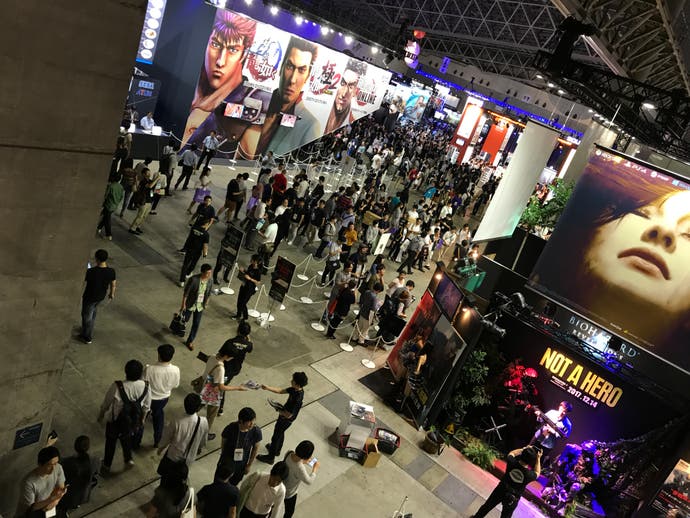
It's not as if the big publishers were absent, either. Sega continues to enjoy some kind of mini-resurgence after its partnership with Atlus, and there's the weird, warming sensation of seeing a new Yakuza game being shown on the floor - well, in this case a slightly new Yakuza game in the shape of Kiwami 2, a remake of 2006's Yakuza 2 - and being fairly confident that it'll get a localisation. There's even more warmth to be found in the return of a series that's been absent for over a decade with Virtual-On - and it's only when shuffling past Phantasy Star Online 2, which still looks brilliant, and still looks no closer to ever being localised, does that familiar pain return.
There's a sense that, after a rough start to the generation, console gaming is back on its feet, even if it's still taking its time finding momentum. After the success of Final Fantasy 15 late last year, I'm told there was a collective sigh of relief across the industry - and when I sat down with that game's director, Hajime Tabata, he cut a much more relaxed, confident figure to the affable chap who was clearly starting to fray at the edges that I met as Final Fantasy 15 entered its final stretch. Resident Evil 7, which followed soon after, also prospered on the global market, and there's the curious sensation of going to Capcom's stand to play an all-new Monster Hunter - always the biggest draw at any TGS - to find a game that's now aggressively tailored for the west.
Reports of the death of Japanese gaming have been grossly exaggerated, then, even if it's not quite as buoyant as it once was. Attendance numbers were slightly down at TGS this year, and even away from Chiba and in Tokyo itself there were signs of decline; how your favourite arcade in Shibuya might have fallen by the wayside, or how some of the retro shops in Akihabara and Nakano Broadway have had their shelves stripped by prospective online scalpers.
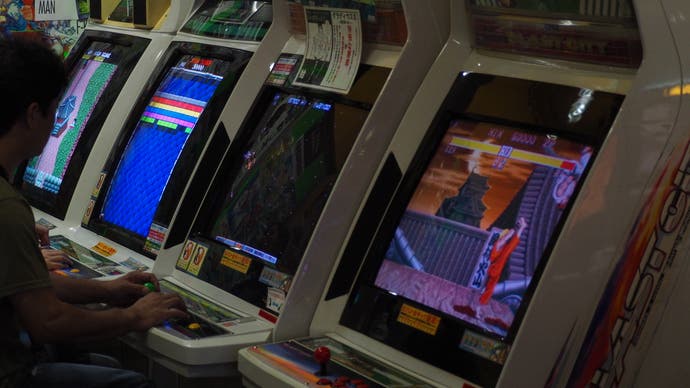
But just when you begin to get a little melancholy, a little wistful for the golden age, you turn a corner and find an all-new shop like Beep where a wall of glorious Konami PCB boards awaits you, or step down some stairs to a Shinjuku arcade and shuffle past the thrumming candy cabinets and discover four men playing SpikeOut, submerged in the cigarette smoke and gentle reveries of a lost Sunday afternoon. And that's when you realise, despite all the doom and gloom that has whirled around it in recent years, that there's no greater destination if you love video games than this. Japan, most definitely, has still got it.
